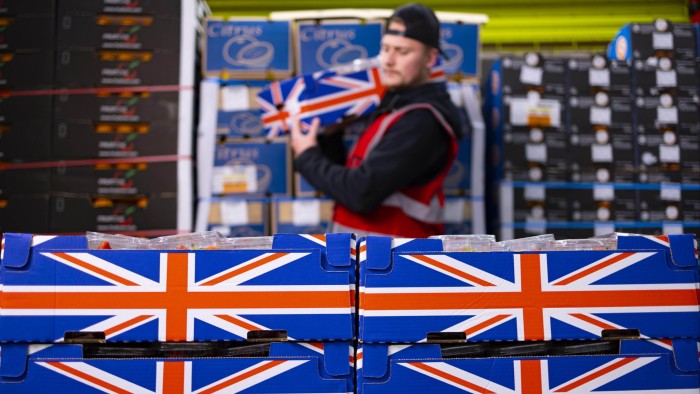Unlock the Editor’s Digest for free
Roula Khalaf, Editor of the FT, selects her favourite stories in this weekly newsletter.
The vast majority of UK consumers plan to “buy British” over concerns that imported products will surge in price after Donald Trump’s sweeping tariffs, according to data that underlines the impact of the US president’s trade war.
Some 71 per cent of people said they wanted to support UK businesses by buying more items that were “Made in Britain”, after Trump imposed a 10 per cent tax on British imports this month, Barclays said on Tuesday.
About two-thirds of consumers were concerned that imported products would become more expensive, according to the survey carried out on behalf of Barclays by Opinium Research, and two in five were already looking for UK-made alternatives.
UK products are subject to 10 per cent US import tariffs, with steel and cars facing a 25 per cent charge. Tariffs are being levied at 10 per cent on EU goods during the current 90-day pause on “reciprocal” tariffs, and reach 145 per cent for products from China.
Bank of England policymakers and economists have warned that the tariffs, which unleashed turmoil across financial markets and sparked fears of a global recession, will hit UK growth. But their effect on inflation remains unclear, given uncertainty over how other countries might respond.
Chancellor Rachel Reeves, who is eyeing a global role in building up trade alliances in the wake of the tariffs, last week declined to back a “buy British campaign”.
“In terms of ‘buying British’, I think everyone will make their own decisions. What we don’t want to see is a trade war, with Britain becoming inward-looking,” she told the House of Commons.
If “every country in the world decided that they only wanted to buy things produced in their country, that’s not a good way forward”, Reeves said, adding that the UK had “benefited hugely” from access to global markets, and continuing to do so was in “our national interest”.
Uncertainty around the impact of tariffs could affect the rise in consumer spending since the start of this year. Data from Barclays on Tuesday showed that, despite being affected by Easter falling in March last year and in April this year, consumer spending increased by an annual rate of 0.5 per cent in March, down from 1 per cent in February.
The increase last month was driven by a 2.2 per cent rise in non-grocery spending, including jumps of 13.4 per cent in garden centres and 11 per cent in health and beauty.
Karen Johnson, head of retail at Barclays, said consumers were feeling the pressure of rising bills and “being mindful of the impact recent global events may have on their finances”. However, she noted “green shoots” as “the warmer weather and longer evenings encouraged consumers to invest time and money in gardening and DIY”.
Official figures published on Friday showed output in consumer-facing services, such as restaurants and shops, rose by 0.6 per cent in the three months to February, the fastest pace in a year.
The figures suggested a rebound in spending after a disappointing 2024 despite solid wage growth.
Separate data published on Tuesday by the British Retail Consortium, a trade body, showed retail sales rose by an annual rate of 1.1 per cent in March. This was above the 12-month average of 0.6 per cent, despite sales being depressed by the late Easter.
Source link









